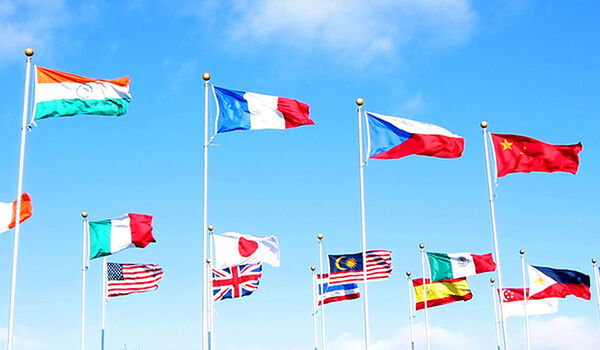The effect forced migration has on returnee entrepreneurs
- Centre for Enterprise and Entrepreneurship Studies

The war in Ukraine has once again brought the topic of forced migration to public attention. As huge numbers of people flee west to escape the conflict and seek sanctuary in other countries, research is required to examine not only how these individuals assimilate in their new host countries, but also the relationships they maintain with their homelands. While it is too early and too complex to predict an outcome in Ukraine, our recent work has shone a light on how forced migrants maintain connections to home and ultimately can return following the end of violence and political instability.
Our recent paper in Entrepreneurship Theory and Practice examines forced migration and returnee entrepreneurship in the contexts of Kosovo and Bosnia & Herzegovina. The wars of the 1990s lead to largescale external migration as well as internal displacement and left a legacy of ethnic and political tensions which, while improvements have been made, have not ceased. However, political reforms and increased stability have meant that more people who were previously forced to leave their homelands are willing to return. Many left family members behind when they migrated, and our paper shows that the emotional connection to these people and their homeland is strong.
In our study, return takes time, but the connection to home remains during the time spent abroad. The average time spent away from the homelands of those participating in our study was 14 years. This is because reconstruction of the homeland takes time, and political stability can be slow to emerge with many institutions, such as law courts and protection of private property, requiring reform and improvement which are often slow. In both Kosovo and Bosnia & Herzegovina, despite reforms, the countries have significant levels of corruption and weaknesses in terms of the rule of law.
As such, the stories of those who took part in our study still resonate today. They are not merely historical stories of the 1990s. They resonate in terms of the individual stories of return as well as political tensions. Bosnia & Herzegovina is facing its most serious crisis since the end of the war in 1995, with Bosnian Serb leader Milorad Dodik threatening secession from the country's institutions. These have been in place since the Dayton Accords which divided the country into the Bosniak and Croat Federation and the Serb-dominated Republika Srpska. At the same time, Bosnian Croat parties are threatening to boycott institutions leading to a wide-reaching constitutional crisis.
In recent years, international presence in the region has decreased, and unresolved rivalries and opposing interests among the three ethnic groups have resurfaced. Tensions have led to the ransacking of returnee homes and stories of other problems for those returning.
Our study shows that a critical incident, such as conflict, leads to long-term historical bonds with the homeland being created. We then show that the eventual return takes place out of a desire to help the homeland. The historical bonds lead to a great deal of pride in the homeland, despite the problems that the countries have faced.
We also show that there are still significant institutional problems in both countries. However, returnee entrepreneurs can substitute for these problems by drawing on informal networks of family, friends and co-ethnic ties, which are characterised as “the eyes and ears on the ground”. As such, for those that return, the institutional problems do not act as a barrier.
This differs from previous research on institutions which has focused on them as constraints in such contexts. Research on returnee networks has focused on fast-growing economies with effective institutions, and there is little understanding of how networks vary contextually including in post-conflict economies. Our study shows that political ties are undesirable in post-conflict contexts due to a lack of trust in government, and as a result, returnee entrepreneurs mobilize informal networks while avoiding others.
Our study also shows that institutional challenges and the activation of informal ties reflect on the objectives of the returnee entrepreneurs. We show that returnee entrepreneurship in post-conflict economies can be enabled through emotional connection to the homeland and that forced migrants have a different relationship with the homeland than other forms of migrant due to the historical bonds created by adversity. We show that returnees in B&H and Kosovo were driven by a moral obligation and non-monetary gains which is the result of the shared experiences of conflict, and do not draw on the knowledge and experience gained in the host country.
There is a tension here with the desire of policymakers to enable returnees to enhance economic growth. The returnee entrepreneurs in our study are not concerned with growth, rather they seek to provide opportunities for employment for family, friends and co-ethnic ties. This activity may not enhance growth but can improve informal institutions in the home country as more people are influenced by the actions of returnee entrepreneurship at home.
Our research has clear implications for other post-conflict economies. As stated at the outset, it is impossible to predict the outcome of the war in Ukraine. It could be months or years of violence, as well as further escalations outside of Ukraine’s borders. However, it is our hope that our research can inform debates on how to engage those who have been forced to migrate in their home countries once violence has ended and political stability as well as democracy returns.
Contact us
If you would like to get in touch regarding any of these blog entries, or are interested in contributing to the blog, please contact:
Email: research.lubs@leeds.ac.ukPhone: +44 (0)113 343 8754
Click here to view our privacy statement. You can repost this blog article, following the terms listed under the Creative Commons Attribution-NonCommercial-NoDerivatives 4.0 International licence.
The views expressed in this article are those of the author and may not reflect the views of Leeds University Business School or the University of Leeds.

